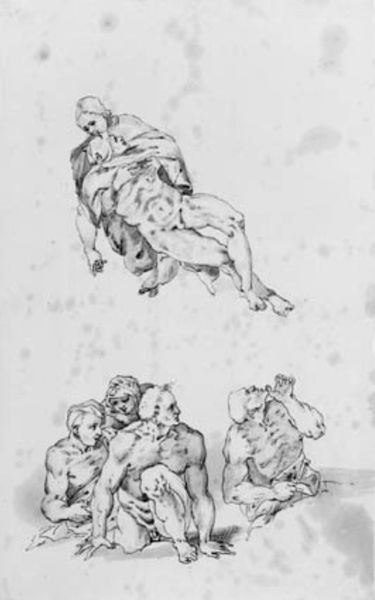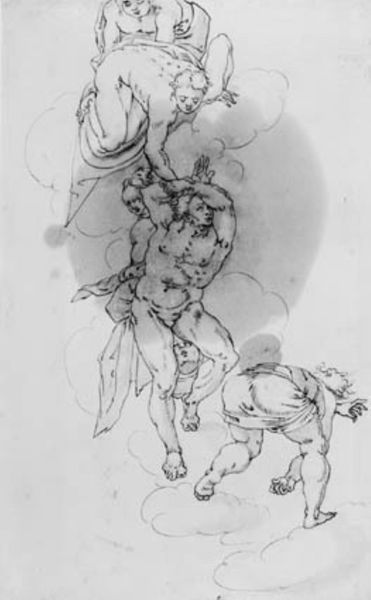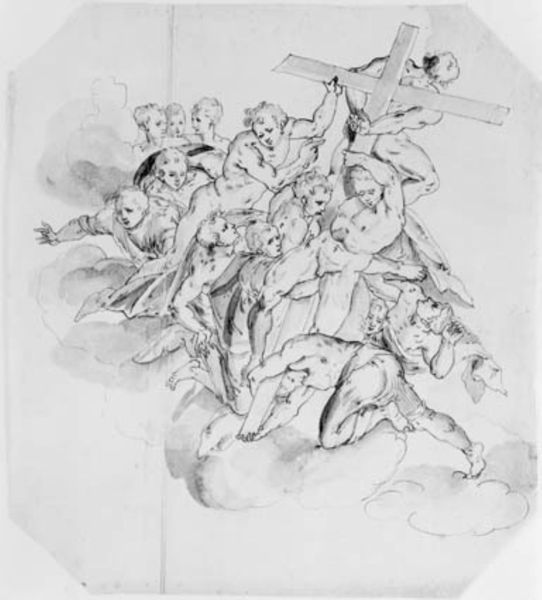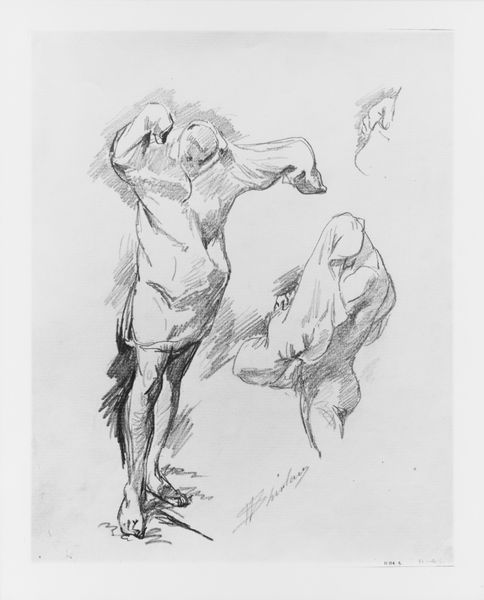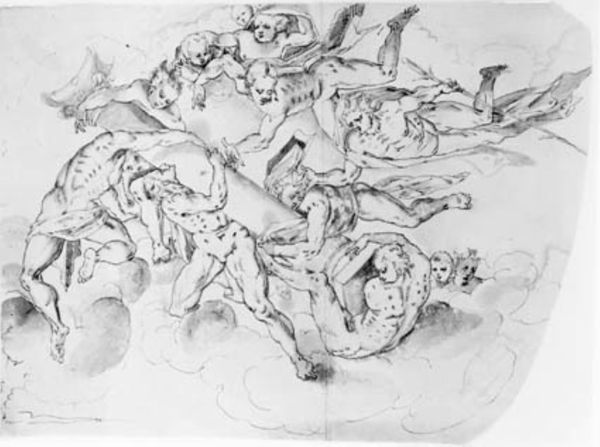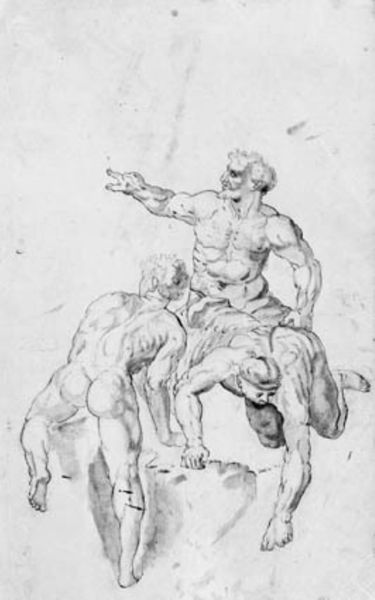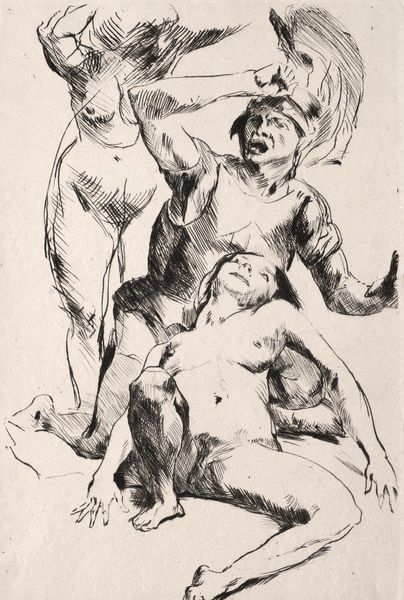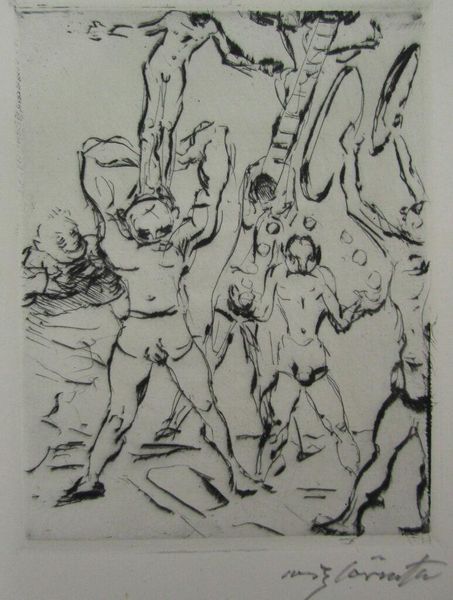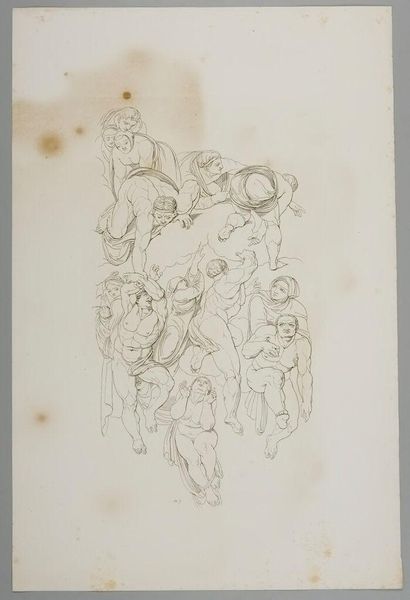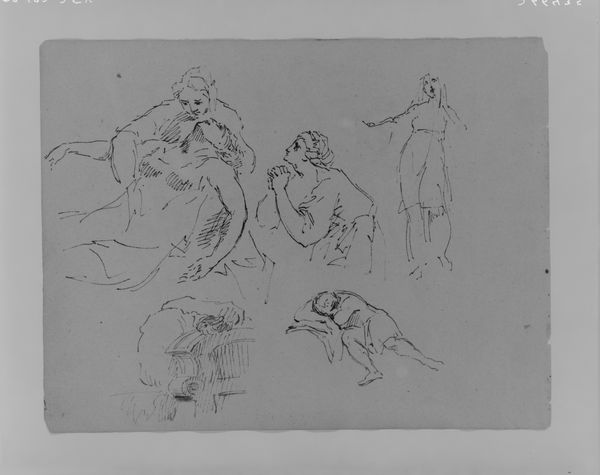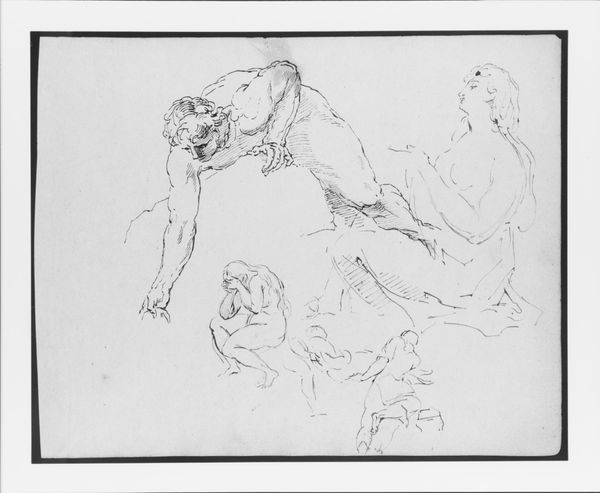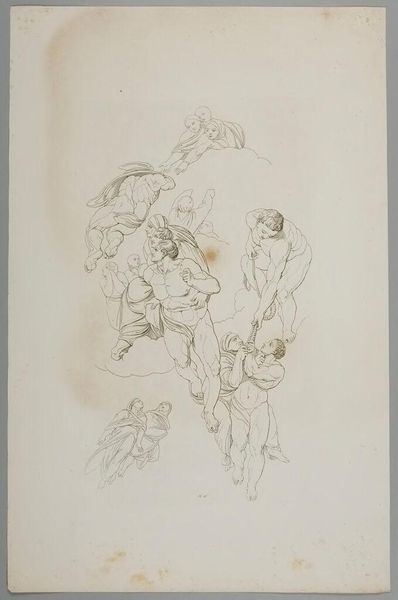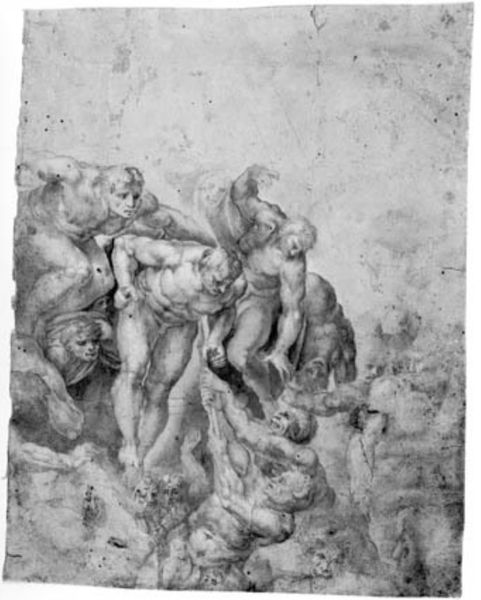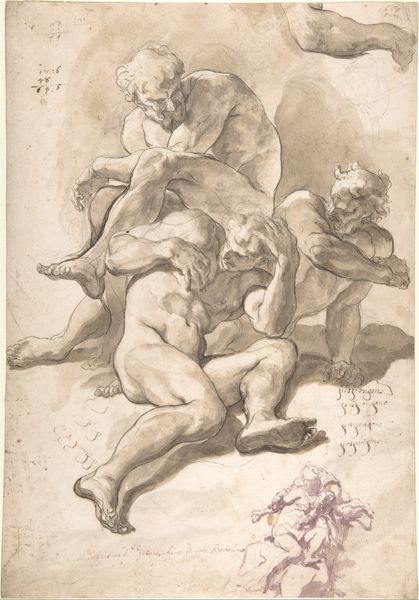
Two groups of figures from the lower left of the Last Judgement, Sistine Chapel 18th century
0:00
0:00
drawing, pencil, charcoal
#
pencil drawn
#
drawing
#
pencil sketch
#
charcoal drawing
#
figuration
#
11_renaissance
#
pencil drawing
#
pencil
#
portrait drawing
#
charcoal
#
history-painting
#
academic-art
Dimensions: 312 mm (height) x 198 mm (width) (bladmaal)
This drawing currently residing at the SMK - Statens Museum for Kunst, captures two figure groups that are part of the lower-left section of The Last Judgment, in the Sistine Chapel. As an anonymous work, it invites questions about authorship and the transmission of artistic ideas in the Renaissance. This drawing, like Michelangelo's fresco, exists at the intersection of religious doctrine and artistic expression. In the 16th century, the concept of the "Last Judgment" was loaded with cultural and political weight, reflecting anxieties about salvation, sin, and divine retribution. The figures here represent a range of human conditions and fates, from the saved being lifted to paradise, to the damned being dragged down to hell. The emphasis on the nude human form, typical of Renaissance art, takes on a deeper meaning within the context of religious judgment, raising questions about the body, morality, and salvation. How do we understand these bodies in the context of faith, and how might viewers throughout history have engaged with their emotional impact?
Comments
No comments
Be the first to comment and join the conversation on the ultimate creative platform.
